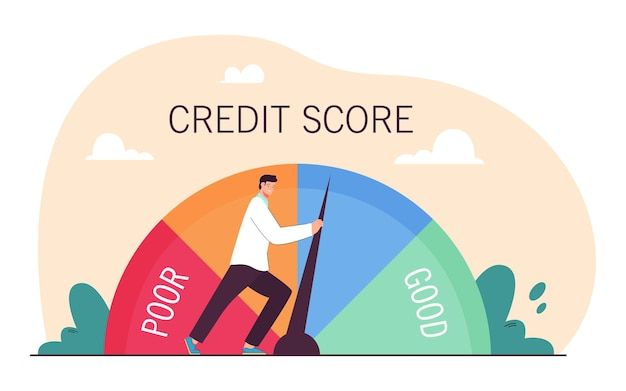Understanding credit: Its impact and evolution in business finance
Credit is essential to modern financial systems and is critical in business finance. At its core, credit is an agreement between a lender and a borrower, where the lender provides funds or resources to the borrower with the expectation of repayment later, often with interest. This arrangement allows businesses to access capital they may not have, enabling them to make significant purchases, invest in opportunities, or cover unexpected expenses.
This article will cover the critical role of credit in modern finance, its historical evolution, various types of credit, and strategies for building and maintaining good business credit.

Historical context
The concept of credit dates back thousands of years, with early forms of credit observed in ancient civilizations such as Mesopotamia, where records indicate grain loans were made between farmers and traders. Over time, credit systems evolved and became more sophisticated, particularly during the Renaissance period when banking institutions began to formalize lending practices. The development of modern credit can be traced back to the 19th and 20th centuries, marked by the establishment of credit bureaus and the introduction of consumer credit products like credit cards and installment loans.
Credit has become integral to the global economy, facilitating trade, enabling investment, and driving economic growth. Understanding the fundamental principles of credit, its various types, and its impact on financial decision-making is crucial for businesses. As we delve deeper into the intricacies of credit, we will explore its different forms, the importance of creditworthiness, and strategies for building and maintaining good credit.
What Is Credit?
Credit refers to a contractual agreement where a borrower receives funds or valuable assets with a commitment to repay the lender at a later date, often with interest. This arrangement is fundamental to many financial transactions, providing access to resources that can be repaid over time.
Credit also represents an individual’s or a company’s creditworthiness or credit history, which is crucial in determining their reliability in repaying borrowed funds. Good credit indicates a consistent history of meeting repayment obligations, which can lead to easier loan approvals, such as for mortgages, and access to lower interest rates, ultimately saving money on borrowed funds.
In accounting, credit has a distinct meaning, referring to a specific type of entry in bookkeeping that records increases in liabilities, equity, or revenue, playing a central role in balancing accounts.
Types of credit
Revolving credit
Revolving credit allows borrowers to use or withdraw funds up to a certain limit and repay either in whole or through minimum monthly payments. The most common example of revolving credit is business credit cards. With revolving credit, as you repay the borrowed amount, your available credit replenishes, allowing for continuous access to funds up to the credit limit. This flexible type of credit enables businesses to manage their cash flow and purchase even when immediate funds are unavailable. However, it often comes with higher interest rates than other credit types.
Installment credit
Installment credit involves borrowing a specific amount of money and repaying it in fixed, regular installments over a predetermined period. Examples include mortgages, auto loans, and personal loans. Installment credit typically features lower interest rates than revolving credit, and the repayment schedule provides a clear timeline for paying off the debt. This predictability makes it easier for borrowers to budget and manage their finances, as they know exactly how much they must pay each month and when the debt will be fully repaid.
Open credit
Open credit, or service credit, is a less common form where the borrower must pay the entire balance owed at the end of each billing cycle. Examples include utility bills, cell phone bills, and charge cards. Open credit has no fixed repayment schedule or an interest rate like revolving or installment credit. Instead, it relies on the borrower’s ability to pay the total amount due within a specified period, usually one month. Failure to pay on time can result in service disruption or additional fees.
Understanding these different types of credit is essential for effectively managing personal and business finances. Each type has advantages and disadvantages, and knowing how they work can help borrowers choose the best credit options for their needs and avoid potential pitfalls.
Importance of credit in businesses
Creditworthiness
Creditworthiness measures a borrower’s ability to repay a loan and is a critical factor in the lending process. Lenders assess creditworthiness by evaluating an individual’s credit history, credit score, income, and other financial indicators. A high level of creditworthiness implies that the borrower is likely to repay the loan on time, which reduces the lender’s risk. This assessment determines whether a borrower qualifies for a loan and influences the loan terms, including the interest rate and repayment schedule.
A strong credit history and high credit score can open up numerous financial opportunities, such as lower interest rates on loans, higher credit limits, and more favorable terms on mortgages and car loans. Conversely, poor creditworthiness can result in loan denials or less favorable loan terms, making it more expensive to borrow money.
Impact on borrowing
Credit impacts borrowing in several significant ways. The primary influence is on the interest rates lenders offer to borrowers. Individuals with high credit scores typically receive lower interest rates because they pose less risk to lenders. Lower interest rates mean lower overall borrowing costs, making financing large purchases or investments more affordable.
Additionally, credit affects the borrowing limits set by lenders. Those with good credit can often borrow significant amounts, providing flexibility and financial leverage. This is particularly important for significant life events, such as buying a home or starting a business, where substantial funds may be required.
Credit also plays a vital role in the approval process for various financial products. Lenders use credit scores to determine eligibility for credit cards, personal loans, mortgages, and other forms of credit. A good credit score can simplify approval and expand available financial options.
Credit bureaus
Credit bureaus, called credit reporting agencies, collect and maintain individuals’ credit information. The three major credit bureaus in the United States are Experian, Equifax, and TransUnion. These agencies gather data from various sources, including lenders, credit card companies, and public records, to create detailed credit reports for each consumer. These reports contain information about a person’s credit history, including account balances, payment history, and any negative marks such as late payments or bankruptcies.
Credit bureaus play a critical role in lending by providing lenders with the information they need to assess a borrower’s creditworthiness. They also calculate credit scores based on credit reports’ data, which businesses use to make decisions about extending credit, offering insurance, or hiring.
Business credit scores
A business credit score is a numerical representation of a company’s creditworthiness derived from the information in its credit report. Lenders, suppliers, and other creditors use these scores to assess the risk of extending credit to a business. The most widely used business credit scoring models include the Dun & Bradstreet PAYDEX score, Experian Intelliscore, and Equifax Business Credit Risk Score, each with its range and criteria.
Business credit reports
A business credit report is a detailed record of a company’s credit history prepared by a credit bureau. It encompasses information about the business’s credit accounts, payment history, credit inquiries, and public records such as liens, judgments, and bankruptcies. These reports are crucial for companies and lenders alike.
For enterprises, regularly reviewing credit reports ensures the accuracy of their credit information and helps detect any signs of identity theft or fraudulent activity. Accurate credit reports enable better financial planning, clearly understanding the company’s credit standing and aiding in informed decision-making regarding borrowing and credit use. Moreover, a strong business credit report can enhance a company’s negotiating power with suppliers and lenders, potentially securing better terms and lower interest rates.

Understanding your credit score and how it’s calculated
Your credit score, a three-digit figure between 300 and 800, is a critical factor that lenders assess to evaluate your reliability as a borrower. This score reflects your creditworthiness, impacting loan approvals and the terms offered.
Your credit score calculation is based on five essential elements: your payment history, credit usage, length of credit history, credit mix, and any recent credit inquiries. Payment history and credit usage are especially influential, so staying on top of these can make a significant difference in maintaining or improving your score.
A high credit score is a sign of good credit, signaling to lenders that you’re a responsible borrower. If your score is low, there are steps you can take to improve it over time. Consistent efforts can eventually enhance your credit profile, opening up access to more competitive loan rates and favorable financial options. Improving credit can be a gradual process, but the benefits are well worth the effort.
Tips for building good business credit
Building good credit is essential for a business’s financial health and growth. Companies should follow several critical practices to establish and maintain a strong credit profile.
- Open a business credit account, such as a credit card or a small business loan, and use it responsibly.
- Consistently paying bills on time is fundamental, as timely payments significantly impact credit scores.
- Use less than 30% of available credit to maintain a healthy credit utilization rate.
- Combine installment loans with revolving credit to enhance the credit profile.
- Too many inquiries in a short period can negatively affect credit scores.
- Regularly review credit reports for accuracy and promptly dispute errors to prevent discrepancies from harming the credit profile.
Adhering to these practices can help businesses build a solid credit foundation, which is critical for accessing favorable financing terms and supporting long-term growth.

Maintaining good business credit
Maintaining good credit requires ongoing attention and responsible financial behavior. Critical practices include monitoring your credit, setting up payment reminders, managing credit accounts responsibly, and staying informed about credit reporting and scoring model changes. These strategies help individuals build, improve, and maintain a strong credit profile, essential for achieving long-term financial goals.
Tools and resources for business credit management
Several tools and resources can help businesses manage their credit effectively:
Credit monitoring services
Credit monitoring services for businesses provide regular updates on your company’s credit score and report, helping you track changes and detect potential fraud. These services alert you to significant changes in your credit report, such as new accounts opened in your business’s name or substantial changes in your credit balances. By keeping a close eye on your credit, you can quickly address any discrepancies or signs of identity theft, thereby maintaining the integrity of your business credit profile. Popular credit monitoring services include Experian Business Credit Advantage, Equifax Business Credit Monitor, and Dun & Bradstreet CreditSignal. These tools are essential for proactive credit management, enabling businesses to maintain good credit health and secure better financing terms.
Debt management apps
Debt management apps can be invaluable for businesses looking to budget, track spending, and create effective debt repayment plans. Apps like Mint, YNAB (You Need a Budget), and Debt Payoff Planner offer features that allow businesses to set financial goals, monitor expenses, and develop customized debt payoff strategies. These apps help companies to stay organized by providing a clear overview of their economic situation, making it easier to prioritize debt repayment and manage cash flow efficiently. By utilizing these tools, businesses can ensure they are making informed financial decisions and staying on track with their credit management goals. This strategic approach can lead to improved credit scores and enhanced economic stability.
Financial advisors
Professional financial advisors can offer personalized advice and strategies for managing business credit and debt. These advisors have the expertise to analyze your business’s economic health, identify potential risks, and recommend tailored solutions to improve your credit standing. They can assist with negotiating better terms with creditors, developing long-term economic plans, and implementing effective credit management practices. Working with a financial advisor can provide businesses with the guidance and support needed to navigate complex financial challenges and achieve sustainable growth. Advisors can also help companies understand the nuances of credit reporting and scoring, ensuring they maintain a strong credit profile. Their insights can be crucial for businesses aiming to enhance their creditworthiness and secure favorable financing.
Common pitfalls to avoid
Mismanagement of business credit can lead to significant financial difficulties, potentially hindering growth and stability. Common pitfalls to avoid include:
Overspending
Relying too heavily on credit can lead to unmanageable debt levels. Businesses that frequently use credit to cover operating expenses or invest in growth without a solid repayment plan can quickly be overwhelmed by debt. This can strain cash flow and make it challenging to meet other financial obligations, ultimately risking the business’s economic health.
Late payments
Missing payments can severely damage your business’s credit score and result in late fees and higher interest rates. Consistently paying bills on time is crucial for maintaining a good credit score. Late payments hurt your credit rating and signal to lenders that your business may be a higher risk, impacting future credit opportunities and terms.
Maxing out credit limits
High credit utilization, or maxing out credit limits, negatively impacts your business credit score and limits financial flexibility. Using a large percentage of your available credit can lower your credit score and make obtaining additional financing more challenging. Keeping credit utilization low demonstrates responsible credit management and improves your creditworthiness in the eyes of lenders.
By avoiding these common pitfalls and practicing effective credit management, businesses can maintain a strong credit profile, secure favorable financing terms, and ensure long-term financial stability.
Credit markets
Credit markets facilitate the borrowing and lending funds between individuals, businesses, and governments. They include various financial instruments and institutions, such as banks, credit unions, and non-bank lenders. Credit markets operate through multiple channels:
Retail credit market
This market serves individual consumers, offering credit cards, personal loans, and mortgages.
Corporate credit market
Businesses access credit through loans, bonds, and lines of credit to finance operations and growth.
Government credit market
Governments borrow funds through the issuance of bonds to finance public projects and manage fiscal policies.
Future of business credit
Technological advancements and evolving business behaviors shape the future of business credit. Key trends include:
Fintech innovations
Fintech companies are introducing new credit products and services tailored for businesses, such as peer-to-peer lending platforms, digital credit scoring systems, and mobile payment solutions. These innovations give businesses more accessible and flexible financing options, often with faster approval processes and competitive rates. Fintech solutions benefit small and medium-sized enterprises (SMEs) with limited access to traditional credit.
AI and machine learning
Artificial intelligence and machine learning technologies enhance credit risk assessment, personalize credit offers, and improve business fraud detection. These technologies can analyze vast amounts of data quickly and accurately, enabling lenders to evaluate businesses’ creditworthiness better and identify potential risks. AI-driven insights can help companies to optimize their credit strategies and make more informed financial decisions.
Alternative credit data
Lenders are increasingly using alternative data sources to assess the creditworthiness of businesses, especially those with limited credit history. Data from utility payments, supplier transactions, and social media activity can provide a more comprehensive view of a business’s financial health. This approach allows more companies, particularly startups and SMEs, to access credit based on a broader range of performance indicators.
FAQ
What does being a credit mean?
When something is “a credit” to an account or individual, it typically means it is beneficial or adds value. In financial contexts, being a credit can refer to a positive balance or entries in accounting, indicating an increase in assets or a decrease in liabilities.
What is the meaning of credit business?
“Credit business” refers to companies or financial institutions that issue and manage credit, such as banks, credit card companies, and credit bureaus. These businesses assess the creditworthiness of individuals and companies to determine their ability to repay borrowed funds.
What is an example of a business credit?
An example of business credit is a company obtaining a line of credit from a bank. This line of credit allows the business to borrow funds up to a specified limit for operational purposes like covering payroll or purchasing inventory, with the expectation that it will pay back the borrowed amount under agreed-upon terms.
What are the two types of business credit?
The two primary types of business credit are:
- Trade Credit is where businesses receive goods or services from another company with an agreement to pay later, typically within 30 to 90 days.
- Revolving Credit is similar to a personal credit card, and a business can borrow up to a specific limit and repay either in whole or over time while continuously borrowing against the credit limit as funds are repaid.
What is credit versus debit?
In business accounting, debits increase asset or expense accounts and decrease liability, revenue, or equity accounts. Conversely, credits decrease asset or expense accounts and increase liability, revenue, or equity accounts, ensuring all financial transactions are balanced.


